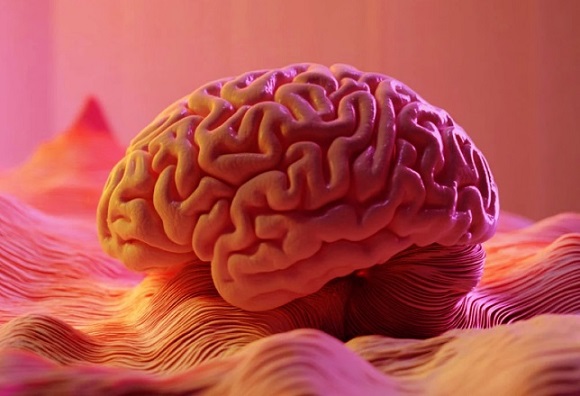Adaptogens Such as Arctic Root and Ashwagandha Support Neurogenesis and Cognitive Recovery in Cases of Brain Fatigue
Nikhil Prasad Fact checked by:Thailand Medical News Team Feb 17, 2025 1 month, 3 weeks, 3 days, 8 hours, 3 minutes ago
Medical News: Brain fatigue is a long-lasting form of mental exhaustion that often occurs after a stroke, traumatic brain injury, or due to age-related inflammation in the central nervous system. Unlike regular tiredness that can be relieved with rest, brain fatigue persists and significantly impacts cognitive function, mood, and overall quality of life. Despite its widespread effects, there is currently no definitive cure for brain fatigue, and treatment options remain limited.
 Adaptogens Such as Arctic Root and Ashwagandha Support Neurogenesis and Cognitive Recovery in Cases of Brain Fatigue.
Adaptogens Such as Arctic Root and Ashwagandha Support Neurogenesis and Cognitive Recovery in Cases of Brain Fatigue.
This
Medical News report highlights a new study exploring the potential role of adaptogens - natural substances known to help the body resist stress - in addressing brain fatigue. The research, conducted by scientists from Phytomed AB in Sweden, EuroPharma USA, and the Johannes Gutenberg University in Germany, examines how specific plant-based adaptogens may support neurogenesis and improve cognitive recovery in individuals experiencing long-lasting brain fatigue.
The Role of Adaptogens in Brain Recovery
Adaptogens are bioactive compounds derived from plants that help the body adapt to stress and restore balance. For centuries, they have been used in traditional medicine to enhance resilience, energy, and cognitive function. The study highlights two key adaptogens - Rhodiola rosea (Arctic Root) and Withania somnifera (Ashwagandha) - which have shown promising effects in preventing and alleviating brain fatigue.
Through advanced research techniques such as transcriptome-wide microarray gene expression profiling, scientists discovered that these adaptogens influence multiple biological pathways involved in stress response, neuroprotection, and brain plasticity. The findings indicate that adaptogens can regulate specific genes responsible for neuronal development, cognitive function, and energy metabolism.
Key Findings from the Study
The study focused on a botanical hybrid preparation (BHP) containing Arctic Root and Ashwagandha, commercially known as Adaptra®. Researchers found that Adaptra® influenced the expression of 22 genes involved in neurogenesis and cognitive recovery. Nine genes, including PRKCZ, GRIN3A, and ADGRL1, were specifically impacted in a way that promotes brain plasticity and learning.
One of the most significant discoveries was the downregulation of the GRIN3A gene, which encodes a subunit of the NMDA receptor, a crucial component of synaptic plasticity, memory, and learning. By modulating this gene, adaptogens may help balance the glutamate-glutamine cycle, which is often disrupted in individuals with brain fatigue. The study aligns with previous hypotheses that stress-induced changes in neurotransmitter levels contribute to cognitive exhaustion and energy depletion in the brain.
Additionally, adaptogens demonstrated anti-neuroinflammatory effects, which could be particularly beneficial for individuals with low-grade chronic inflammation due to ag
ing, stroke, or viral infections. By reducing neuroinflammation, these compounds may support the long-term recovery of brain function and resilience against mental fatigue.
Implications for Future Treatment
Although adaptogens show great promise in alleviating brain fatigue, more clinical studies are required to confirm their efficacy and safety. The study suggests several potential applications for adaptogens, including:
-Post-stroke rehabilitation to enhance neurogenesis and cognitive function
-Stress-related brain fatigue management in individuals experiencing chronic mental exhaustion
-Protection against age-related cognitive decline
Future research is expected to focus on randomized controlled trials, brain imaging studies, and additional in vitro and in vivo experiments to establish a clearer understanding of how adaptogens interact with brain cells and neurotransmitter systems.
Conclusion
The research on adaptogens offers a new perspective on managing long-lasting brain fatigue, particularly for individuals recovering from stroke, trauma, or chronic stress. By modulating gene expression, reducing neuroinflammation, and supporting neurogenesis, adaptogens such as Arctic Root and Ashwagandha may provide a natural and effective way to improve cognitive function and overall brain health. While further studies are necessary to validate these findings, the potential benefits of adaptogens in brain fatigue treatment are an exciting avenue for future medical research.
The study findings were published in the peer-reviewed journal: Pharmaceuticals.
https://www.mdpi.com/1424-8247/18/2/261
For the latest on Brain Fatigue, keep on logging to Thailand
Medical News.
Read Also:
https://www.thailandmedical.news/news/breaking-news-study-reveals-potential-new-form-of-brain-neurodegeneration-linked-to-covid-19
https://www.thailandmedical.news/news/the-role-of-vitamins-in-protecting-the-brain-and-slowing-neurodegenerative-diseases
https://www.thailandmedical.news/news/covid-19-alters-brain-glucose-metabolism
https://www.thailandmedical.news/pages/thailand_hospital_listings
